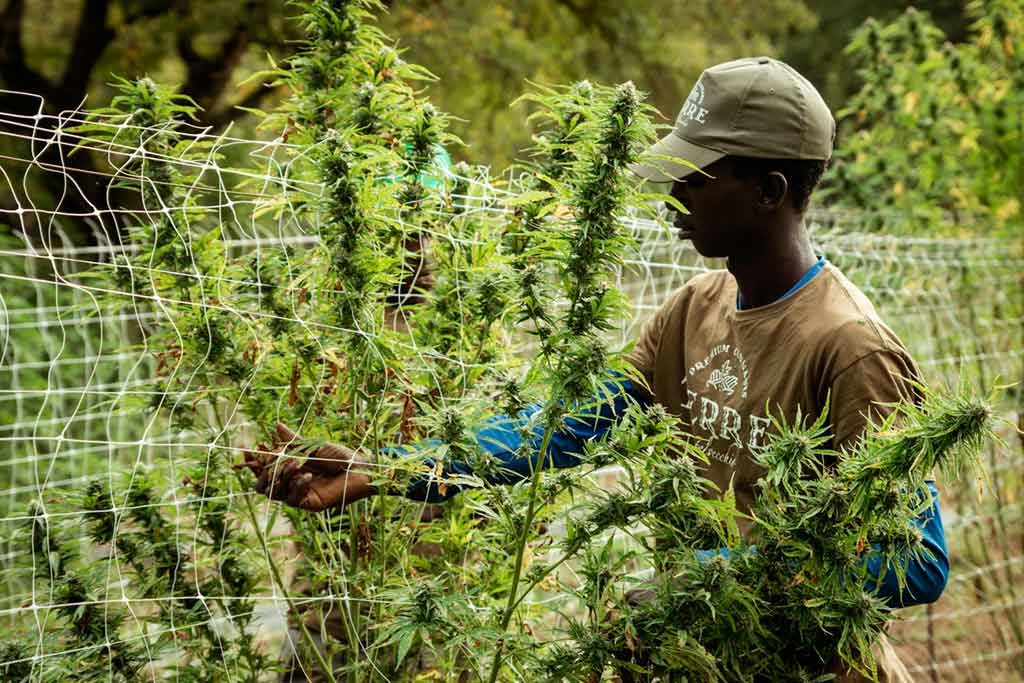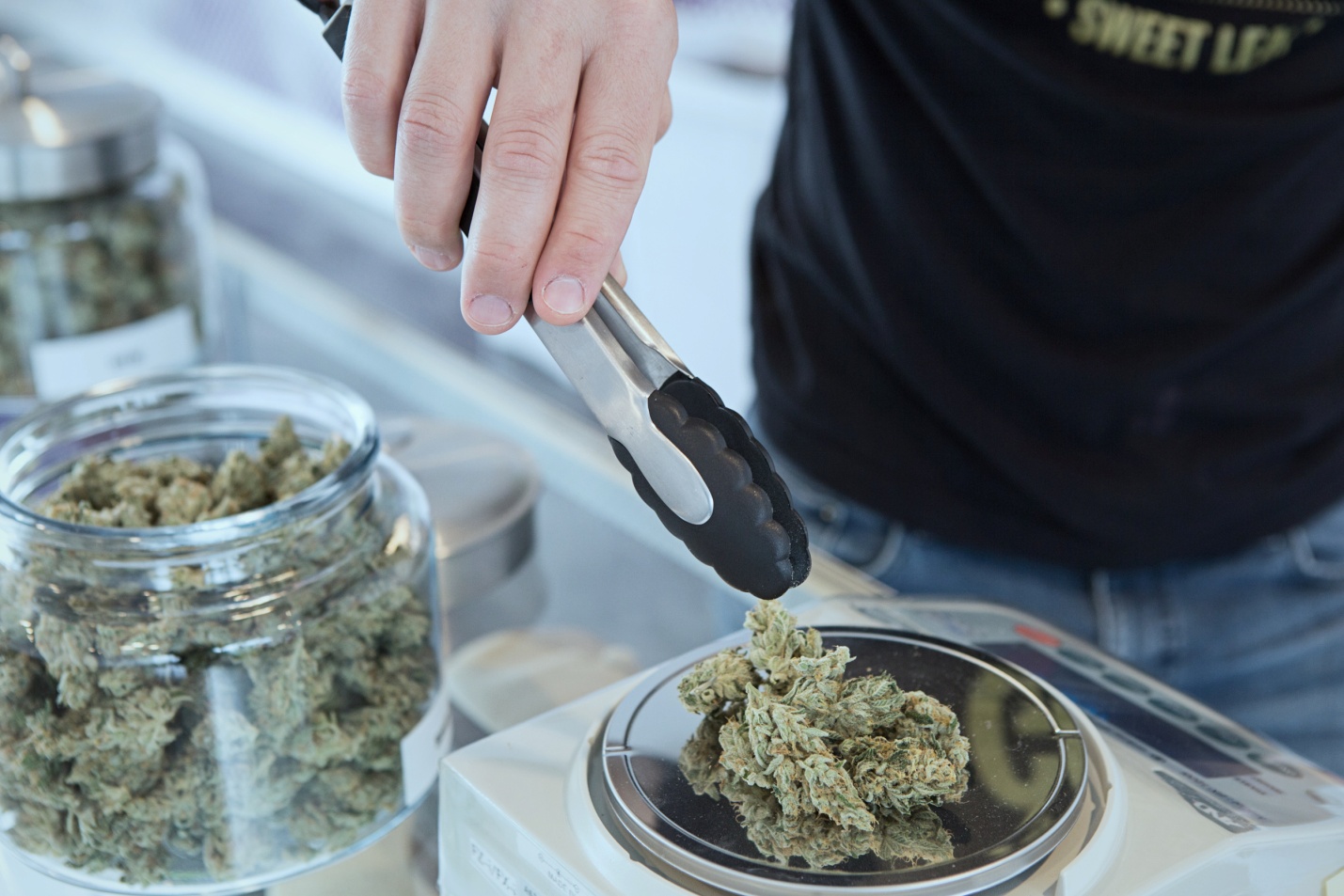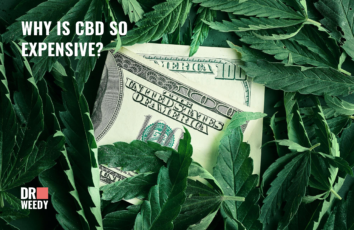How Fast Are Corporate Cannabis Stocks Growing?


- What are the new professional job opportunities in the marijuana industry?
- The most popular professions in the field of cannabis
- Assets and other securities of cannabis
- Ways to get rich in the cannabis market
- Bubble or not?
- Famous investors
- Conclusion
The legalization of cannabis is happening all over the world in many developed countries. The emergence of many new laws promoting its legalization suggests that the cannabis market is developing rapidly. Investing in medical cannabis can be quite profitable. Still, many investors don’t know all the possibilities of how to invest in cannabis inside this wide market.
The easiest way is to invest in cannabis itself. Many cannabis manufacturing companies work in Canada, as Canadian law is less strict about cannabis. These companies usually work either as public (listed on the stock exchange “NASDAQ”) or on the off-exchange stock trading system (OTC); therefore, they are easy to find. Some companies are already quite large or even stand on the top rung of the business. While others are only working to rise to the level required for the market.
What are the new professional job opportunities in the marijuana industry?
Whatever they say about the moral side of marijuana legalization, 21 American state and district of Columbia have already allowed the production and sale of cannabis (and its derivatives). Pot trade in the US has turned into a full-fledged “big business,” and the legalization of cannabis creates new jobs.
Applicants literally line up, trying to get such a job. The world’s first trade fair, devoted to the cannabis industry, took place in March 2014 and turned out incredibly popular. Many Americans appreciated the possibilities for building a successful career that the legalization of marijuana opened before them.
The most popular professions in the field of cannabis
According to Dan Kingston, the president of “420 Careers”, the field of cannabis in the US is developing faster and more dynamically than any other sphere of economy. Its rapid growth generates hundreds of new paid jobs. And no one can predict what kind of profession (related to medicine, law, or finance) will become popular in the near future as a result of changes in the legal status of weed.
Currently, the following professions are the most popular among applicants in the field of production and sale of marijuana products:
- Budtender (from the “bud” and “bartender”).
The work of the budtender lies in direct interaction with the customers. Like a bartender, sommelier, or pharmacist, he listens to the wishes of the customers and advises him on the products. Following the recommendation of the “budtender,” the customer chooses the sort of cannabis, whose properties correspond to his/her perception of the perfect weed.
- The journalist in the field of marijuana.
The task of the journalist is not to popularize the idea of using Ganja, but to cover all the economic aspects of its legalization, as well as the results of the latest scientific and statistical research in the media. While conservative publications prefer not to touch such a sensitive topic, the mass media of Colorado and Washington attract a new readership with the help of thematic articles.
- Owner/operator of cannabis production.
The owner of the private business on the production of marijuana generally makes decisions in all aspects of cannabis cultivation: he/she determines the location of the future production, hires the staff, chooses fertilizers and equipment, creates the overall sales strategy, and distributes the finished products. The owner receives profit from the entire company (after deducting the cost of marijuana production), while the operator gets a certain share of profits.
- Trimmer.
He/she performs manual work – harvesting and care of plants. It is known that specific sorts of cannabis require special care – they need to be cut and tinted in time; moreover, it is necessary to remove the large leaves. Only then you can get the maximum yield. This is a very tedious job, and for its correct execution, it is necessary to acquire certain skills. The work of the trimmer can be paid either hourly or piece-rate, depending on the volume of the resulting crop. By the way, a very common option is to pay “in-kind”, when an employee receives a salary not with money, but with marijuana.
- Petitioner.
This is the name of a person who collects signatures for human rights organizations in the field of cannabis. This position attracts social activists.
- Marijuana packer.
This is another position that suggests unskilled manual labor. Usually, several packers work in one room, packing the finished product into the bags manually during the working shift. The position is suitable for introverts, who don’t mind the prospect of spending 8 hours a day on four walls.
- Educator in the sphere of marijuana.
More and more attention is being paid to the educational process in the field of cannabis. The task of the educator is to teach groups of students, during which they learn about the medical and recreational properties of the plant and how to invest in cannabis. “Medical Marijuana Tampa” in Florida is an example of such a “refresher course.”
- Technician in the extraction.
Concentrated cannabis-based products have recently become very popular. However, the process of their extraction is quite difficult, and not everyone can perform it correctly in house conditions, which explains the popularity of this job.
- Event manager.
Organizers of mass events are also in demand in the industry. Trade fairs, competitions, and exhibitions (for example, “Cannabis Cup” or “Rush Expo”) are usually very crowded, and the coordinated work of the staff allows you to spend them without overlap.
Assets and other securities of cannabis
Despite its legal status in some US states, the cultivation and sale of cannabis are illegal at the federal level, which makes it almost impossible for suppliers and producers to obtain loans from the bank, let alone public access to the exchange.
Investors will be attracted by a large profit. That’s why the index is tied to the Canadian market, which employs 11 of the 16 companies included in the index, and 8 of them have licenses to supply of medical marijuana in Canada, and some also do business in the US. There are also three US firms that aren’t directly involved in marijuana: “Scotts Miracle-Gro,” which produces hydroponic systems necessary for the production of raw materials, while the other two produce medical drugs from artificial cannabinoids. The list of companies influencing the index also includes a British pharmaceutical company with registration in America and an Uruguayan firm registered in Canada.
Ways to get rich in the cannabis market

Legalized cannabis is used in many industries — cannabidiol-based oil is used to make cosmetics, while cannabis is used in house building. Legalization has made cannabis cultivation a fast-growing industry affecting other global markets as well.
A keen interest in the business of growing and processing marijuana has led to the emergence of dozens of startups. According to the latest research, the market for legal marijuana will exceed the $20 billion mark by 2025. Now, there is a surge in investment in various cannabis-related startups. Funding for such companies doubled in 2019. So…
Medicine
Scientists have found specific substances in cannabis. They are called cannabinoids and can be used for medical purposes. Multiple research confirmed that cannabidiol helps against epilepsy, neuropsychiatric, and anxiety disorders, cancer, etc. Legalized cannabis can also replace opiates in the treatment of chronic pain.
Cosmetics and products for a healthy lifestyle
Cannabidiol-based oil is a promising novelty in the industry. It doesn’t affect the psyche but can relieve pain, anxiety disorder, and depression. Moreover, the oil has an anti-inflammatory effect and helps against acne. It can be used by athletes to relieve inflammation after a workout. It also helps them build muscle mass.
The brand “Lord Jones,” popular in the US, makes cannabidiol candy and body lotions that help against muscle pain, joints, and skin diseases. It is potentially possible to create lip balms and mascara based on oil.
Packaging materials
The package of the products containing cannabis is strictly regulated by law. The main requirements are a special cover that prevents access to children, indicators of unauthorized access, and opacity of the package itself.
Banking
About 400 local banks and credit unions have clients engaged in the legal cannabis market. That number has tripled since 2014.
Cryptocurrency
The seattle-based firm “Düber” helps cannabis companies secure their bank accounts. They plan to create a new cryptocurrency called “dübercoin” to simplify the transactions between suppliers and customers.
Agriculture
Cannabis is a plant of the Hemp family containing a low level of tetrahydrocannabinol. To produce a ton of finished textile products from hemp, you need half as much land as if you would make them of cotton. Cannabis can grow in different soils and at different temperatures. The plant is resistant to drought, which is why growing it on an industrial scale will help to save water resources.
Electronic commerce
The billion-dollar legal cannabis industry mainly trades in cash and in person, so the industry has yet to master e-commerce. Recently, e-companies have started to develop projects focused on marijuana-related businesses.
Outdoor advertising
Outdoor advertising of cannabis is becoming increasingly common, even in the states where marijuana isn’t legalized. Part of the popularity of external advertising is due to the desire of retailers to bypass the restrictions imposed by law on the signs of retail outlets.
Food products
In 2019, $180 million worth of cannabis-containing food products were sold in California, which amounts to 10% of total marijuana sales in the state. According to the data of “Green Market” as of February 2019, the figure rose to 18%. At the same time, “Dixie Elixirs” was among the first companies in Colorado to sell truffles, chocolate bars, mints, and drinks with marijuana.
Alcohol
Alcohol consumption is falling worldwide, and the manufacturers are looking for a way to boost sales, including through the release of cannabis-based beverages. In California, “Lagunitas Brewing Company” announced the release of two types of psychotropic carbonated water.
Tobacco
Tobacco producers, as well as alcohol manufacturers, are trying to create new products with marijuana to stop the market decline.
Textile and fashion industry
Modern consumers are willing to pay up to 20% more for eco-friendly products because large suppliers and niche brands are making a serious bet on clothes made of hemp fabric. Popular brands already produce clothes made of hemp fabric, similar in texture to jeans or wool. For example, “EnviroTextiles” — brand of clothing for yoga “prAna,” “Patagonia,” or “Bad Decision Adventure Club.”
Plastic
Plastic — cheap and multifunctional. But the fact that it isn’t biodegradable is a big threat to the environment. Cannabis can become an alternative to plastic; it will be possible to make everything of hemp: from the bottles to the household appliances and toys.
Biofuel and energy
Hemp produces 4 times more oil per hectare than soybean- the only plant that is grown on an industrial scale to create biofuel in the United States. Researchers from the University of Connecticut have discovered that biofuel can also be made of cannabis. Scientists plan to create the first plant using a $1.8 million grant from the US Department of Energy. It will be able to produce up to 757 thousand liters of biofuel per year.
Paper
The world uses up to 400 million tons of paper every year, and about 17 trees are necessary to manufacture one ton of paper. One hectare of hemp can give 4 times more paper than a hectare of wood.
Building
Hempcrete is a light cementing material made of the hardened parts of a stalk of hemp, lime, and water. It can be used as concrete in modular building blocks. Hempcrete can replace OSP, drywall, and insulation. In the United States, the first 50 cannabis houses were built in 2010.
Bubble or not?
Sharp jumps in the share price of these and other cannabis companies have forced stock analysts to talk about the emergence of a new market “bubble,” which will inevitably burst and collapse the share price of marijuana producers. Analogies were cited with blockchain companies, the value of which was unreasonably inflated during the bitcoin rush of the end of 2017. Then the companies (even those that weren’t related to cryptocurrencies) simply added the word “blockchain” to their name, and it was enough that their shares were bought up by investors at an inflated price. A similar thing happened with the cannabis plant. Many rushed to place their assets on the exchanges, not even growing a single cannabis plant but simply promising to do so in the future.
“Those who say that the cannabis industry will follow the path of blockchain and collapse are wrong,” told Eric Spitz, a Board member of Canadian marijuana distributor “C4 Distro&Trading” in an interview with “Yahoo Finance.” – This is a young market, which, of course, will have difficulties with the formation. Today, the total cannabis market, including legal, grey, and illegal, is higher than the wine market, slightly less than the spirits market, and half the beer market”. Spitz also drew attention to the positive changes in the perception of marijuana among the population of North America and the rest of the world.
Famous investors

Canopy Growth – the leading manufacturer of medical marijuana. The company’s capitalization reaches $3 billion. A major producer of alcoholic beverages, “Constellation Brands,” invested $245 million in the firm, repurchasing 9.9% of the shares. The firms are planning to organize a joint production of beer with marijuana. “Canopy Growth” has strong international ambitions and plans to consolidate its presence in the markets of different countries.
Aurora Cannabis –the second-largest player in the cannabis market with the capitalization of $2 billion. The firm is in talks to acquire a major medical cannabis supplier, “CanniMed Therapeutics.” The organization has a subsidiary “Pedanios” in Germany and 20% of shares of the largest marijuana supplier in Australia.
Cronos Group – an investment company with a capitalization of $474 million. The firm buys the most promising cannabis producers: “Zone Produce,” “Peace Naturals,” and “Original BC.” The company also owns 21.5% of the shares of “Whistler Medical Marijuana Company” and some more small lots of shares of such companies as “Grow Canopy.”
Aphria – the capitalization of this manufacturer is about $1 billion, but it also managed to surpass “Aurora” by the sales level. Its main difference from other cannabis growers is the firm’s focus on the US market.
Tilray Inc. — their shares have been volatile since IPO in July, but the company has supply agreements in 12 countries, and a clinical trial in the US The capitalization of the market is about $9.9 billion.
Feedback
Richard, 37
Investing in medical cannabis is definitely worth it. The alcohol industry is a perfect example. About 100 years ago, society had exactly the same attitude to the legalization of alcohol. However, this business has already justified itself and remains one of the most profitable on the planet. All in due time. So risk and earn!
George, 25
I want to say that the potential of the new market has already been estimated by the investors. In particular, since 2016, “Microsoft” has been cooperating with the American startup “Kind,” which works in the cannabis market. During the cooperation, special services have been developed to track the processes of growth and sale of medical cannabis. This system operates in the states that have legalized the production and distribution of medical marijuana – an ideal and reliable investing in cannabis option for 2020.
Jessica, 32
Anyway, the industry of legal cannabis is experiencing rapid growth and development. It is believed that in the near future, the number of investors will increase. All these thanks to the legalization and public support of cannabis. However, it is important to understand which companies to investing in the cannabis industry and what to take into account. After all, there are often many “soap bubbles” around a potentially profitable business.
Conclusion
The cannabis market is relatively new and fast-growing. Therefore, it has both ups and downs. Because of the young age of this industry, many investors see it as a prospect of high returns, while others see the downside of the process – high volatility. Anyways, as well as in any investment, investing in the cannabis industry is always necessary to start with exploring the market, and only then invest money in it. There are high hopes that in the near future, the cannabis market will reveal its rich potential. Therefore, it deserves the attention of investors and investing in cannabis.


























